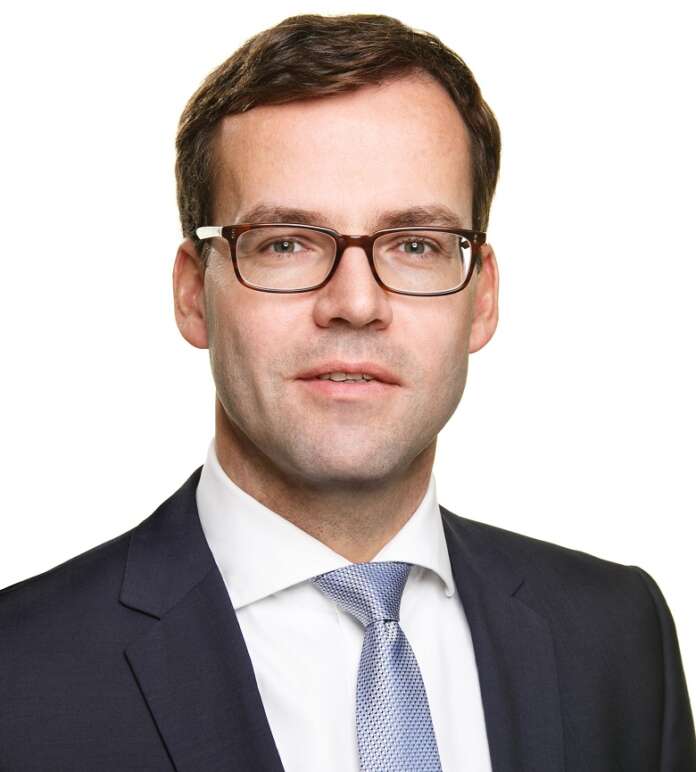Thomas Schubert will be one of the speakers at the Budapest Hydrogen Summit, to be held on 10 March.
CEENERGYNEWS spoke with him about the conditions that need to be cultivated in Central and Eastern Europe to support the development of green hydrogen technology. Mr Schubert is a Corporate/M&A partner in Dentons’ Berlin office and Head of the European Venture Technology Group as well as the co-head of the European Energy Regulatory Group. His area of expertise lies within the innovative technology sector, including hydrogen.
Green hydrogen has the potential to decarbonise industrial processes and those economic sectors where reducing carbon emissions is urgent or hard to achieve. The European Union has adopted the hydrogen strategy and its Member States, including many in Central and Eastern Europe are following the suit, drafting national hydrogen roadmaps and laying the ground for accelerating the hydrogen technology development and use.
The Member States such as Germany, for instance, that has a leading renewables market and generation capacity is considering establishing hydrogen economies with the EU’s Eastern neighbours, those countries that have a high potential for clean hydrogen production and export.
In January 2022, the Federal Foreign Office of Germany unveiled a plan to open a Hydrogen Diplomacy Office in Kyiv, Ukraine and a little earlier, a similar office in Moscow, Russia. The purpose of this initiative was the promotion of investments in a clean hydrogen economy and import opportunities but the break-out of war between Russia and Ukraine last week has rendered the plan implausible.
Mr Schubert told CEENERGYNEWS that such a turn of events will have repercussions on the trajectory of green hydrogen development on a broader scale as there is the risk that Europe might put efforts in finding short term solutions to rising energy prices “without having the bandwidth to focus on what mid or long-term solution could be”. As a result, the implementation of hydrogen-related projects in the region could be delayed.
For Germany, to reach its targets by 2030 set in its national hydrogen strategy, 90 per cent of clean hydrogen has to be imported since national production can only supply 10 per cent of the necessary volume.
“I think that using the potential that Ukraine has for renewables production and, by that, green hydrogen production, was one of the solutions to supply to Germany the hydrogen that’s required. Now, with this new situation, it’s totally uncertain how that will turn out”, Mr Schubert suggested.
Overall, the shift from hydrocarbons to a green hydrogen economy which is tied to the upscaling of renewables can change the geography of energy trade and with this, relations between States.
“It will enable the regions that have not been energy suppliers until now to jump on that train […]. Given the overall global challenges that we are currently facing, I think we will turn to what’s more regionalized, Europe-wide production to gain energy independence from other countries that we heavily rely on”.
For Mr Schubert, those regions in Europe that have more potential for renewable energy production can become suppliers of green hydrogen.
“Especially when we look at the Southern part of CEE, the places with higher irradiation, more space for installation but also with sufficient water available. For them, this will be the opportunity to become a major energy supplier in the future. Namely, Romania which has a lot of renewable installations already and Ukraine”.
The number of Member States in Central and Eastern Europe that are adopting hydrogen strategies is progressively increasing. While this trend is setting the stage for the development of clean hydrogen in the region, there are additional mechanisms and conditions that need to be created.
“You need a reliable regulatory framework to enable infrastructure investments. This includes the establishment of CfD schemes to create a market”, said Mr Schubert adding that clean hydrogen quota which can generate demand, combined with spending on R&D programs are fundamental for clean hydrogen technology development.
“Once you start adding clean hydrogen to the overall energy mix, you encounter all the challenges, you realise that it is a heavily regulated sector and the respective rules need to be adjusted to accommodate the use of clean hydrogen”.
Clear legislation and its enactment is only the first step in this direction but vital for providing reliability for investors and creating a green hydrogen market which according to Mr Schubert does not exist at present.
“First of all, you need to establish the infrastructure and at the same time, a market by which current higher costs of production are somehow being addressed in a way that there is sufficient demand and offtake for the respective green hydrogen. I think one element, and this is what Germany has been implementing, is creating a contract for a different (CfD) scheme, meaning that you try to match demand and supply. So you take the cheapest supplier and the one who is willing to take the highest price, then you match both and you got a mechanism by which the difference between those prices is compensated from the regulator, the government. Once this market has been established, only then can we get into scale”.
As for investors, opting for clean hydrogen now when the technology is still in its infancy has considerable advantages.
“Being there early on of course is an opportunity. To take the offshore wind example, about 10 years ago there was total uncertainty as to what happens when you put a wind turbine into the water. This was a pretty risky investment at that time. Now it has become a commodity. That’s where we get a large volume of renewable power and I think we will see a very similar development in the hydrogen sector […]. Of course, the early bird always takes the risk of losing money at the beginning but as we have seen in the offshore sector, the ones who were there early on and could establish their position are now profiting from it”, Mr Schubert concluded.



